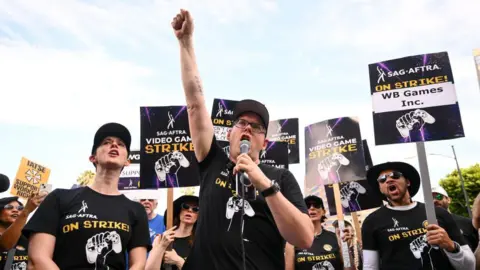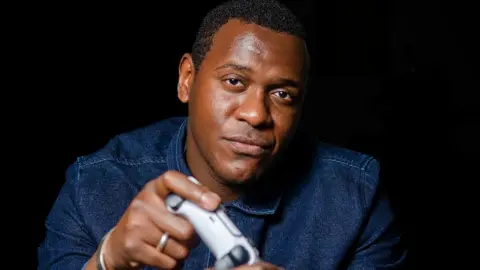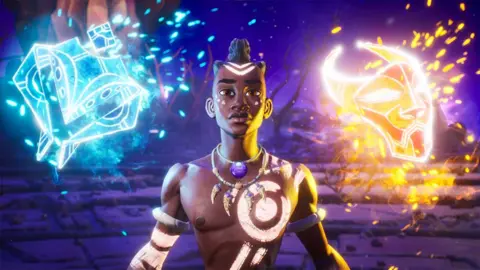

Online games could be first to be hit by the video game acting strike if the dispute is not resolved quickly, according to a union boss.
Performers in the industry walked out on 26 July after a failure to reach an agreement over the use of generative artificial intelligence (Gen AI) in development.
Members of union SAG-Aftra, which represents about 2,500 performers, recently staged a picket outside the offices of Warner Bros, one of 10 game companies negotiating with the union.
They say their offer gives workers “meaningful protections” but SAG-Aftra disagrees.
BBC Newsbeat spoke to Duncan Crabtree-Ireland, the union’s chief negotiator, to find out what it could mean for gamers.
Though the strike is focused on a single issue, the rules around it are a little less clear.
Games that began development before September 2023 are officially exempt from strike action, so this year’s big releases and the hugely anticipated Grand Theft Auto 6 are unlikely to be affected.
Because video game development takes a long time and is very secretive, the effects on games might not be clear for a while.
Duncan predicts that “live gaming” – a term used to describe regularly updated titles like Fortnite and Apex Legends – “will be affected most quickly”.
“Those are games that are constantly rolling out new content at all times, rely on subscribers and constant refresh in order to maintain their relevance,” he says.
However, almost all big online games were made well before September 2023.
Electronic Arts CEO Andrew Wilson reportedly told investors he didn’t expect the strike to affect the company, which makes several live-service games, in the short term.
The union previously told gaming site Aftermath that it would include live-service titles in the strike if the dispute continued for more than 60 days.

“This is probably one of the most straightforward labour disputes you can imagine because there’s really one issue,” says Duncan.
AI was also at the heart of the Hollywood strike that brought productions to a halt last year.
That action was also led by SAG-Aftra and, Duncan says, “it was one of the toughest issues to resolve”.
Generative AI systems, whether they are designed to produce text, images or audio, don’t create anything from scratch, but are trained on existing material.
This can include words, pictures and, in the case of actors, performances.
Duncan says the worry is “a very specific use of AI” which relates to “replicating performances by humans”.
The union says it wants guarantees that performers won’t be duplicated without being paid and to have control over how their “face, voice, body is used to create performances”.
TV and film actors were able to reach an agreement giving them protection from unauthorised use of their likeness by AI.
Duncan says SAG-Aftra is unhappy with the current offer from gaming companies because they feel it doesn’t protect all their members.

The union is particularly concerned about stunt performers whose motion-captured movements might be used as the basis for an in-game character’s climbing or fighting animation.
Currently, the union says, these are treated as “data” rather than performances, and not covered by existing agreements.
Actor Abubakar Salim, who recently appeared in season two of HBO’s House of the Dragon, has also worked in videogames, most notably as Bayek in Assassin’s Creed: Origins.
He tells Newsbeat the idea that a performer could turn up for a single recording session, only to have their voice “be saying and doing anything” is “terrifying”.
“I think the big fear here is taking away someone’s voice,” he says.
“No-one wants their voice being taken away.
“No one wants their stamp on something being taken away.”
Abu also founded his own development company, Surgent Studios, which released debut game Tales of Kenzera: Zau earlier this year.
As a studio owner, he says AI has been around in gaming for a long time, but thinks generative tools will never replace humans.
